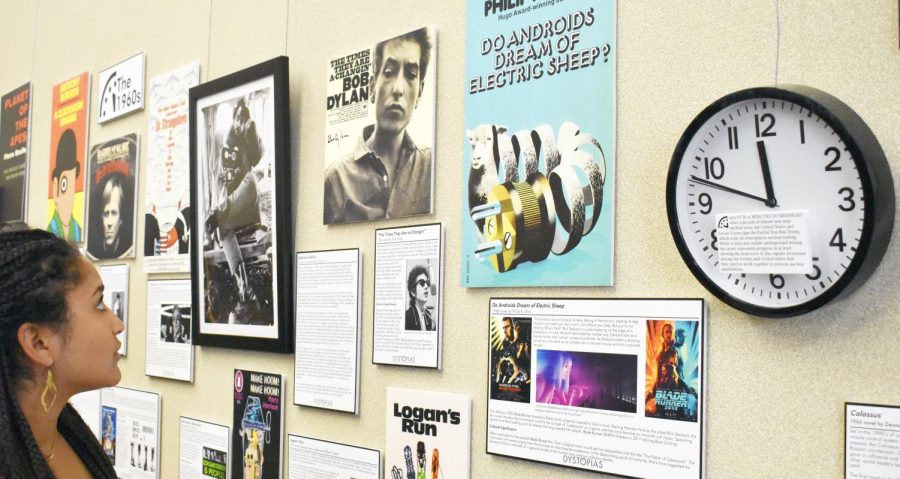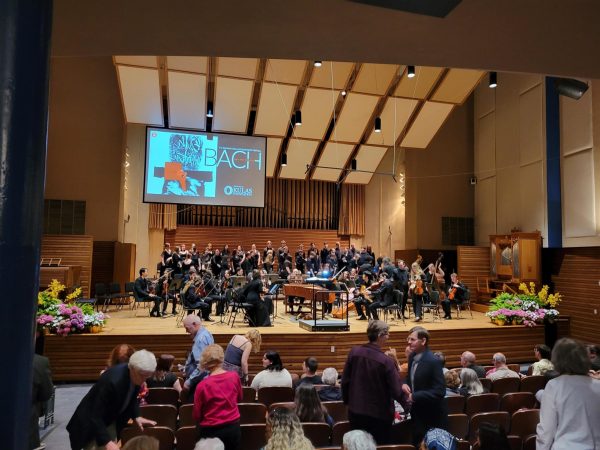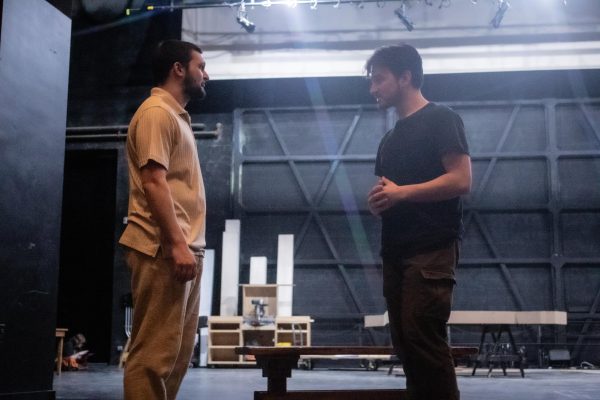It’s the end of the world as we know it
Ritter’s ‘Dystopia’ exhibit in full swing
Prophecies, predictions and paranoia: the three ideas that surround BW’s Dystopia Festival. Following in the footsteps of last year’s Frankenstein Festival, this year’s events are sure to make you think about the kind of future that lies ahead.
So, where did the idea to have an event surrounding dystopias even start? Two members of Ritter Library’s staff, Keith Peppers and John Curtis, endeavored to start an annual event to showcase a specific genre or idea that has shaped our present view of the world; whether it be through literature, film, or other forms of media.
After the success of the Frankenstein Festival last year, Curtis and Peppers immediately started thinking of a new idea for the coming year.
“We started planning an event surrounding dystopias last October, about a year ago,” says Peppers, “There is so much that goes into making these events a success, which is why we love when people come to see them.”
Curtis and Peppers explain that the entire exhibit, which is bigger than last year, has one specific and important focal point: the Doomsday Clock. Created after the creation and detonation of the atomic bombs, the Doomsday Clock is set so that midnight represents global catastrophe. However many “minutes” to midnight represents how close the world is to chaos.
The exhibit—which spans the first floor of the library—is organized by stations that represent different decades, from the 1940s to the 2010s. Each decade has a clock set to whatever time the doomsday clock was during that period in history.
The effect is somewhat haunting—the time set for the 2010s is almost the same as it was in the 1940s, the year that the Doomsday clock was created and society was the closest to midnight.
Curtis and Peppers took great care in selecting specific titles to be displayed for the event, and came up with a list of 100 books, movies, and music that they felt best exemplified the dystopian ideal. 1984, Animal Farm, Fahrenheit 451, The Handmaid’s Tale, and The Blade Runner are a few of the wildly popular and prophetic works displayed for the festival.
“We made a bunch of edits to this list, finally coming up with this one,” Curtis says. “After we figured out what we wanted to show, we had to create the displays. Our student workers Jake Knowlton and Bran Sheehan really helped out a lot on that front.”
The festival also highlights guest speakers—many of whom are professors here at BW—to speak about the ideas behind dystopias and why their messages are so important to us today. With double the space than last year to have lectures, Ritter is hosting a total of 21 events.
One of these key speakers is Dr. Ana Boe of the English department. Her lecture, entitled “Dystopia as Feminist Critique: Atwood’s The Handmaid’s Tale; Monaé’s Metropolis: The Chase Suite, and Miller’s Mad Max: Fury Road“, looks at how a writer, musician, and filmmaker depict the treatment of women and minorities within dystopian societies.
Regarding her talk, Dr. Boe states, “I will argue that dystopia becomes a form of protest literature in these works–depicting a not-too-distant future in order to criticize present-day injustices and warn about the consequences of letting these inequalities and social problems fester.”
Events like this one are great opportunities for faculty, staff, and students to dissect societal problems and discuss them, said Boe.
“I love that the library has developed these interdisciplinary lecture series–along with library exhibits, film screenings, and theatrical performances–the last two years,” she said. “It’s exactly the kind of intellectual exchange that universities are all about. It’s fantastic that the library is facilitating these broader intellectual discussions and debates.”
The festival will end with a Micro-fiction Dystopia contest, in which writers from across campus will try their hand in writing a dystopian short story. The winning writers will have a chance to read their dystopic stories at the library’s award ceremony on Nov 21 at 4p.m.
For more information about lectures or the event in general, visit Ritter Library or the BW website at www.bw.edu/dystopias.
The Exponent is looking for financial contributions to support our staff and our newsroom in producing high-quality, well-reported and accurate journalism. Thank you for taking the time to consider supporting our student journalists.













































